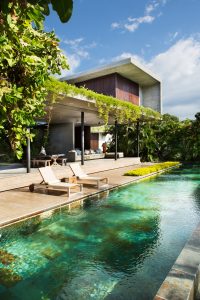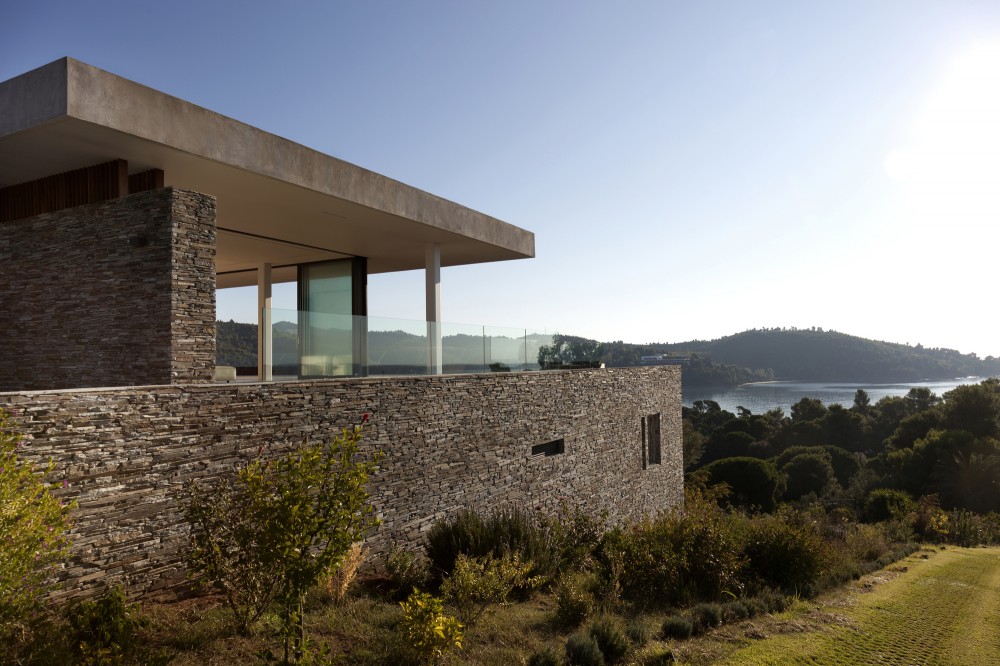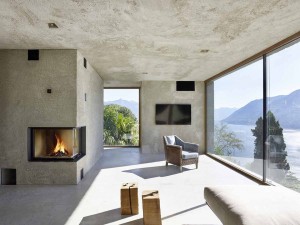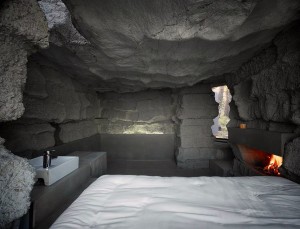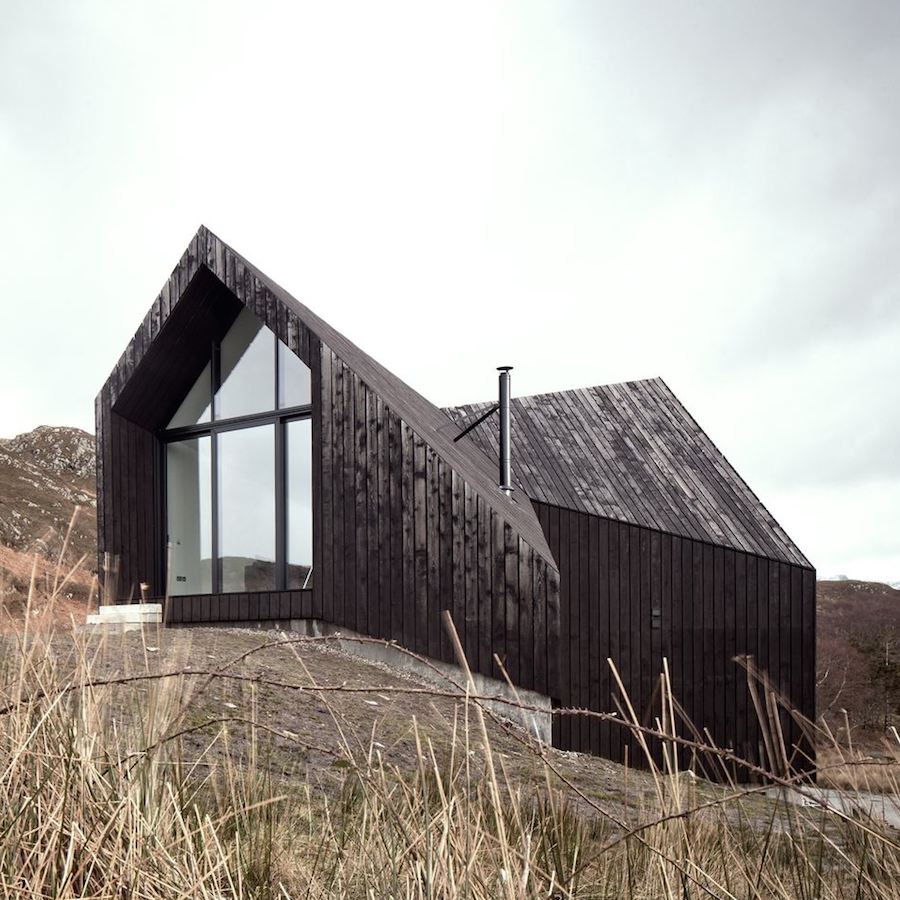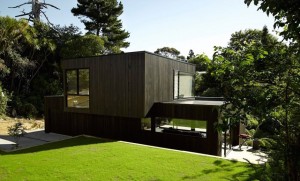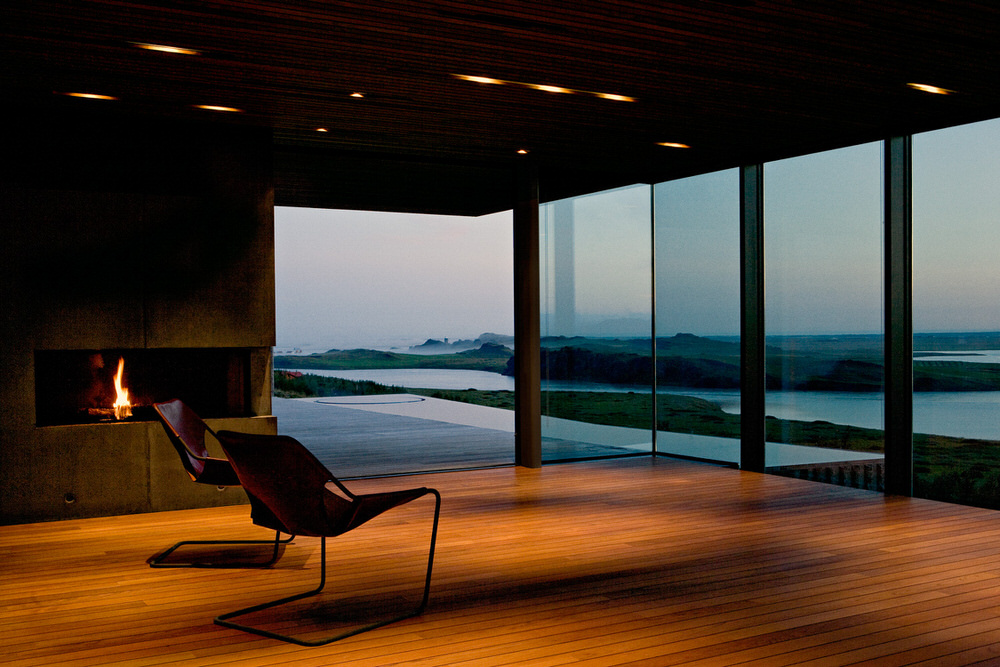
A vast single-storey holiday home overlooking an Icelandic glacial valley, Árborg House is the very definition of contextual architecture. Great care was taken while designing the dwelling to ensure its materials matched its surroundings — in several instances even making use of onsite resources — to help it blend with Iceland’s highly valued scenery.
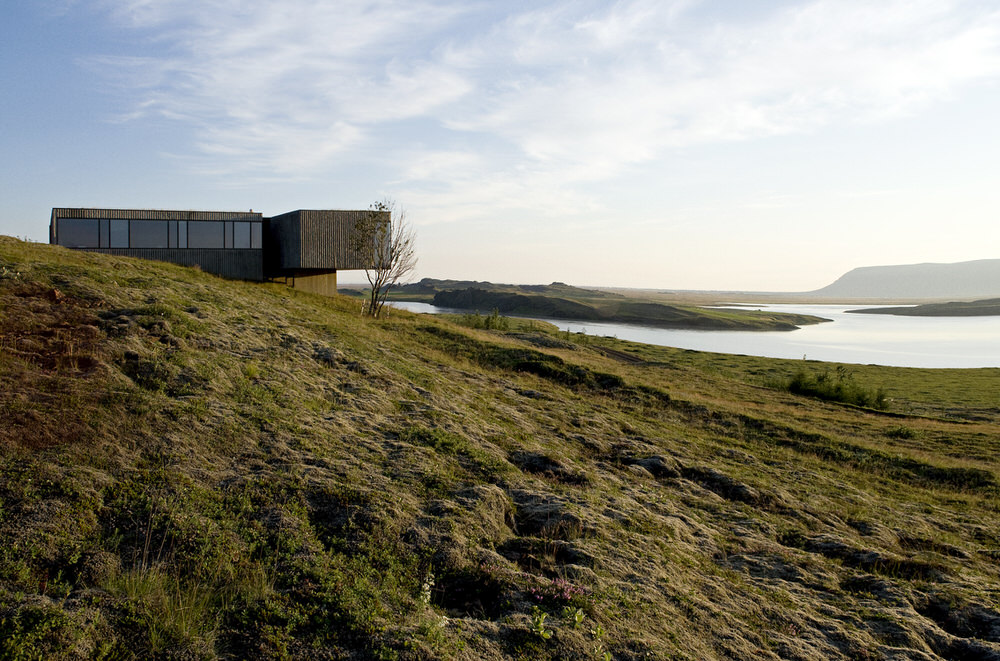
Árborg House sits on a mossy hillside and the displaced moss that had grown where the building now resides was carefully removed, sustained, and then replanted on the roof of the finished house so as to minimise the structure’s environmental footprint.
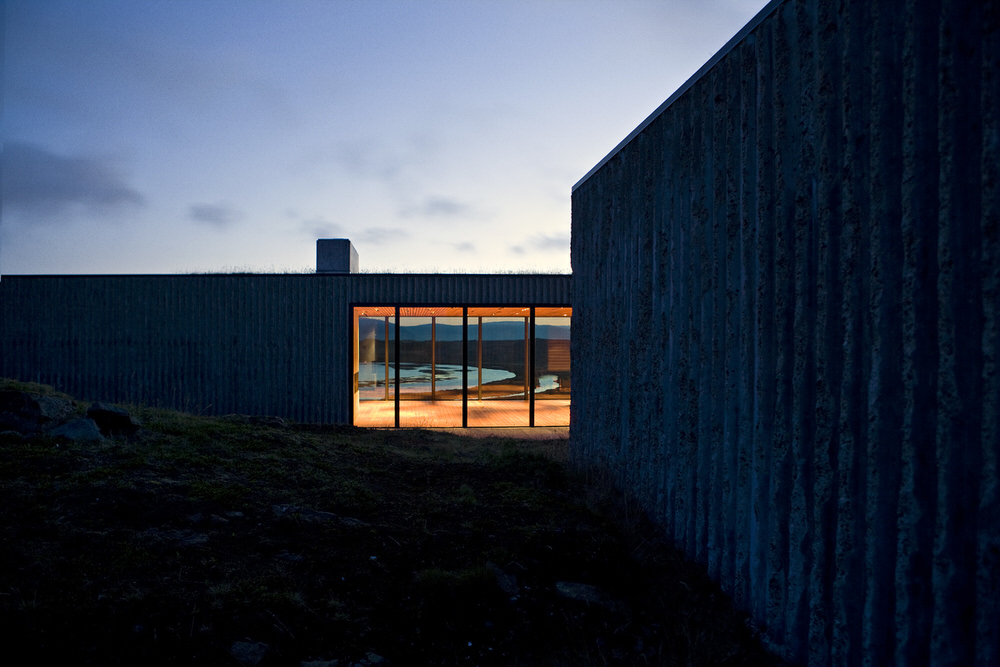
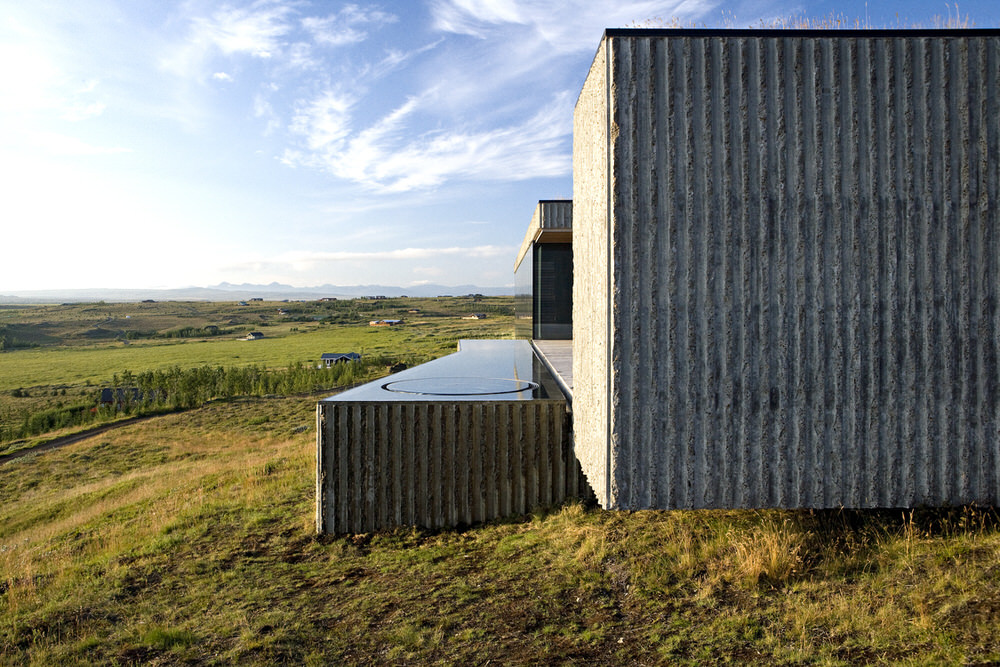
The concrete exterior of the house has also received a ruffled-ridge finish to help the dwelling blend into the mossy and craggy Icelandic landscape. In fact the gravel aggregate mixed into this concrete for the pitted texture was gathered from the nearby Hvita river further indicating the architects insistence on localised preservation. This roughened surface seems an ideal habitat for moss to colonise further over time, but whether this was PK Arkitektar’s intention remains unclear.
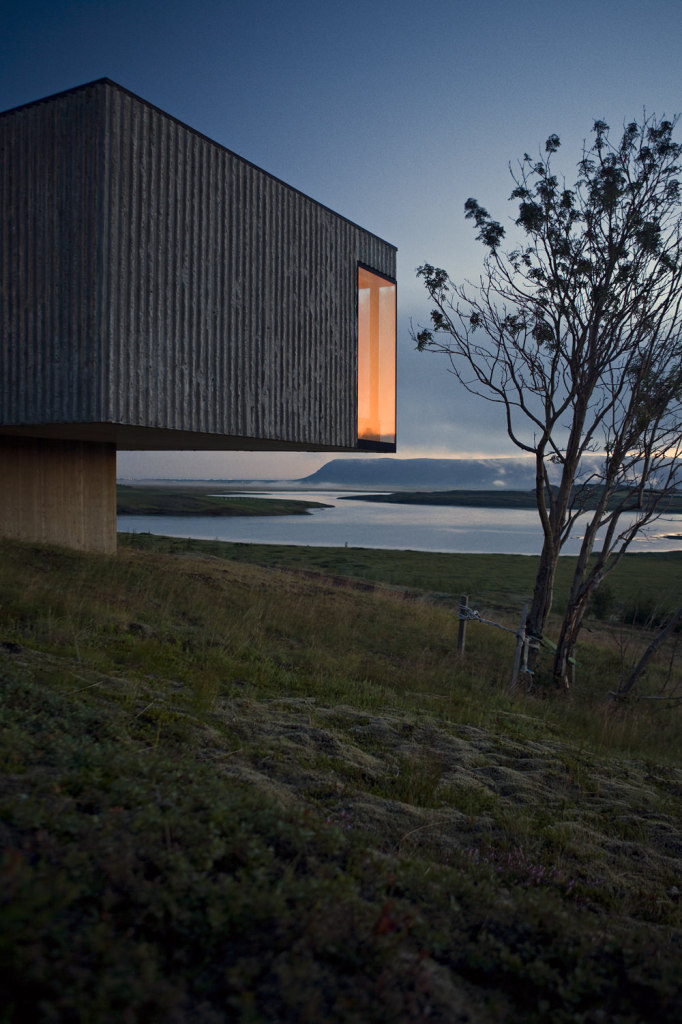
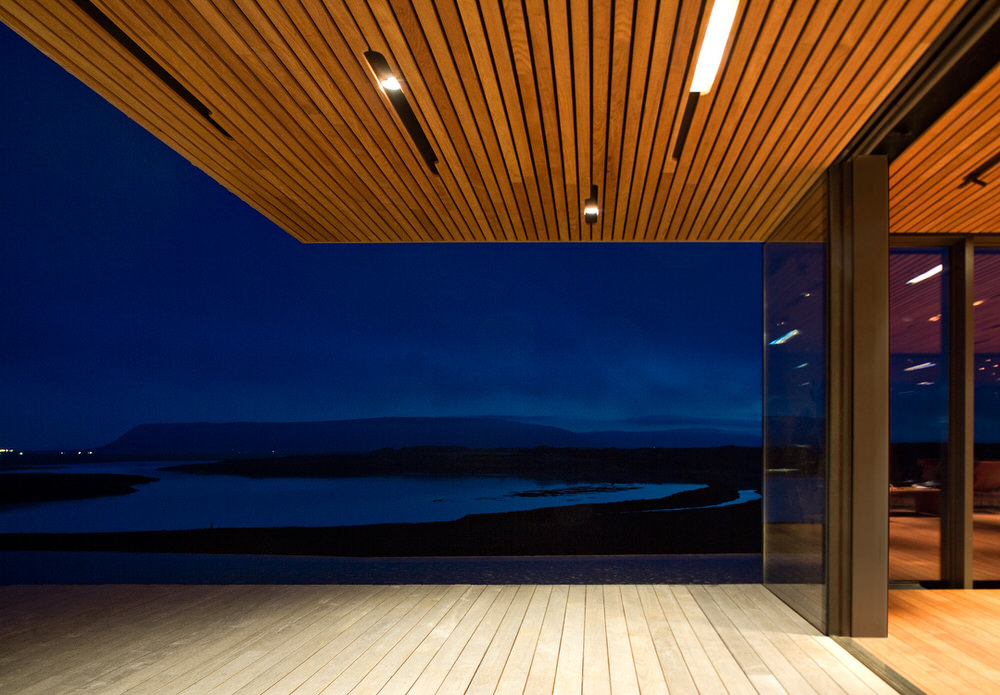
The site is a moss-covered hill with a view over a quiet bend in the glacier-formed river. In the spring, the river carries the icebergs from the glacier towards the sea some 100km away.PK Arkitektar
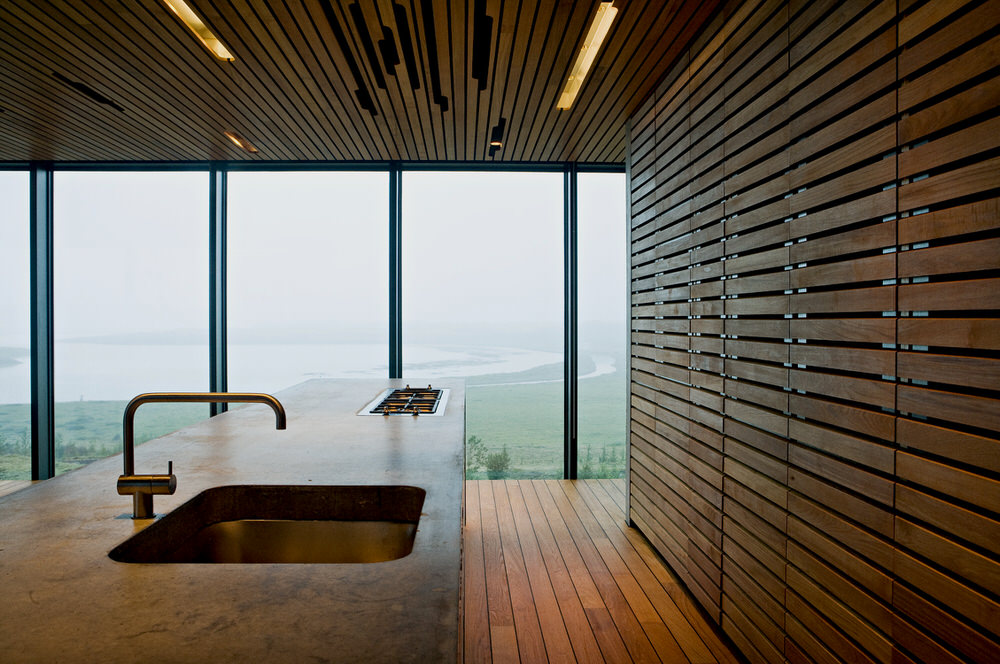
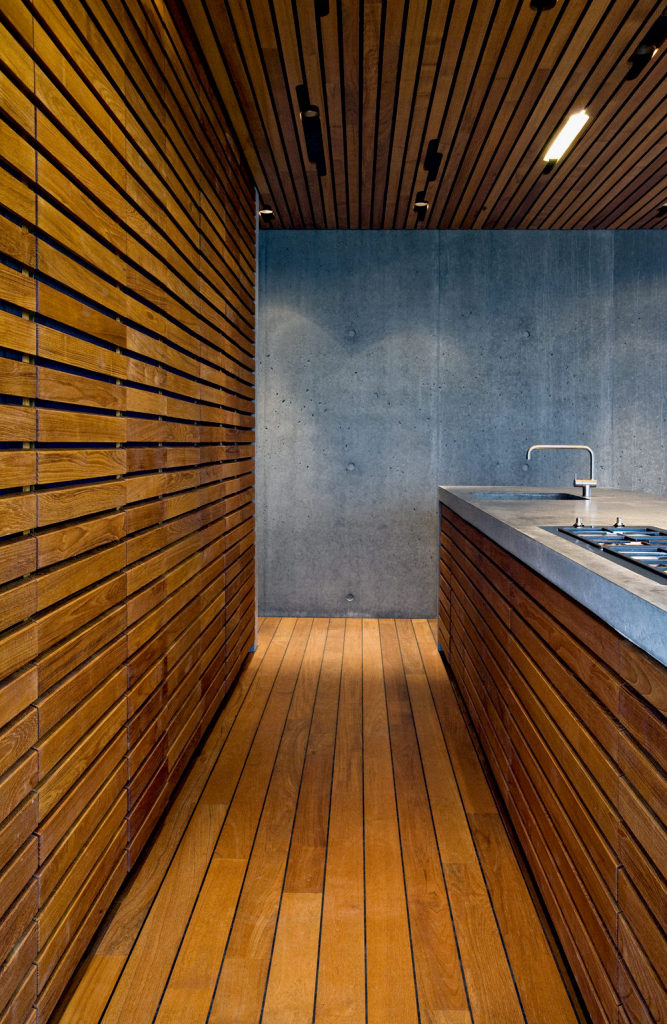
The interior spaces are similarly minimalistic, with a rather raw choice of materials. A relatively cold blue-grey concrete is counterbalanced by a warm hued teak which reflects the ‘ice and fire’ duality of Iceland’s geography. Teak cladding is also featured on the exterior terraces and doors, but this has silvered over time to a more muted tone.
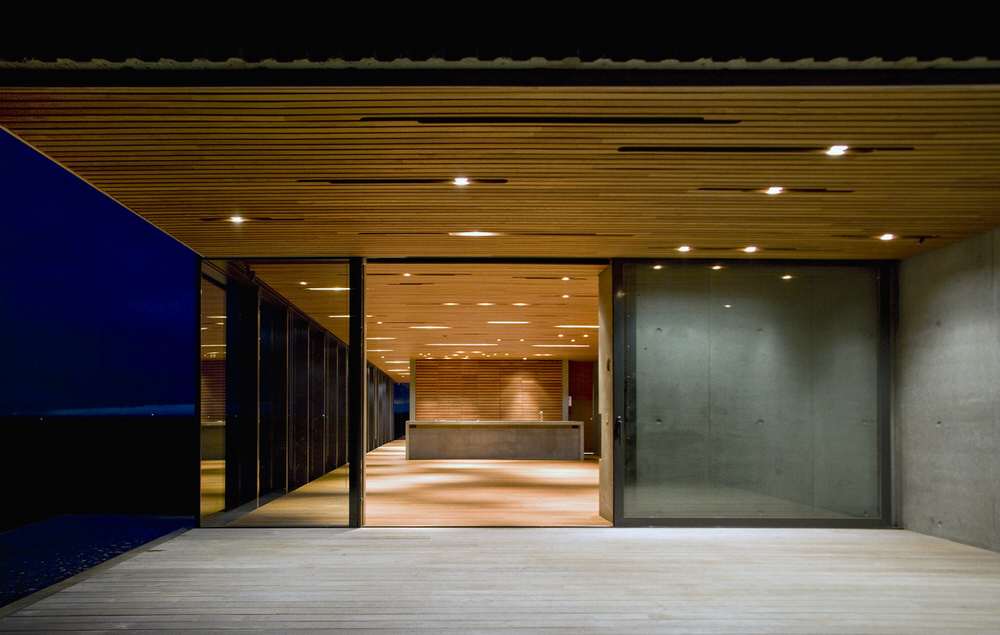
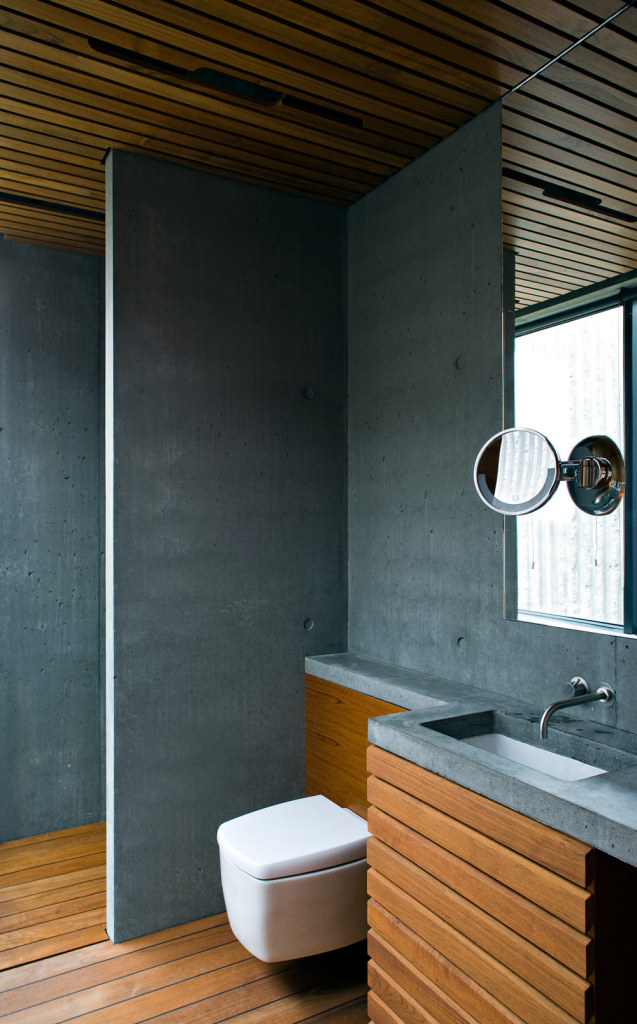
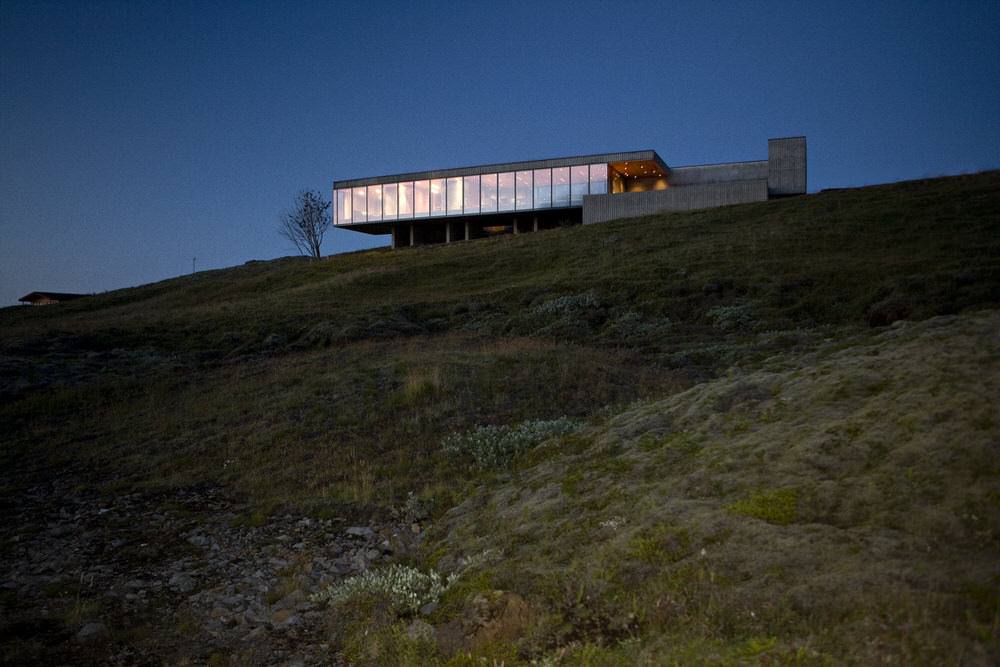
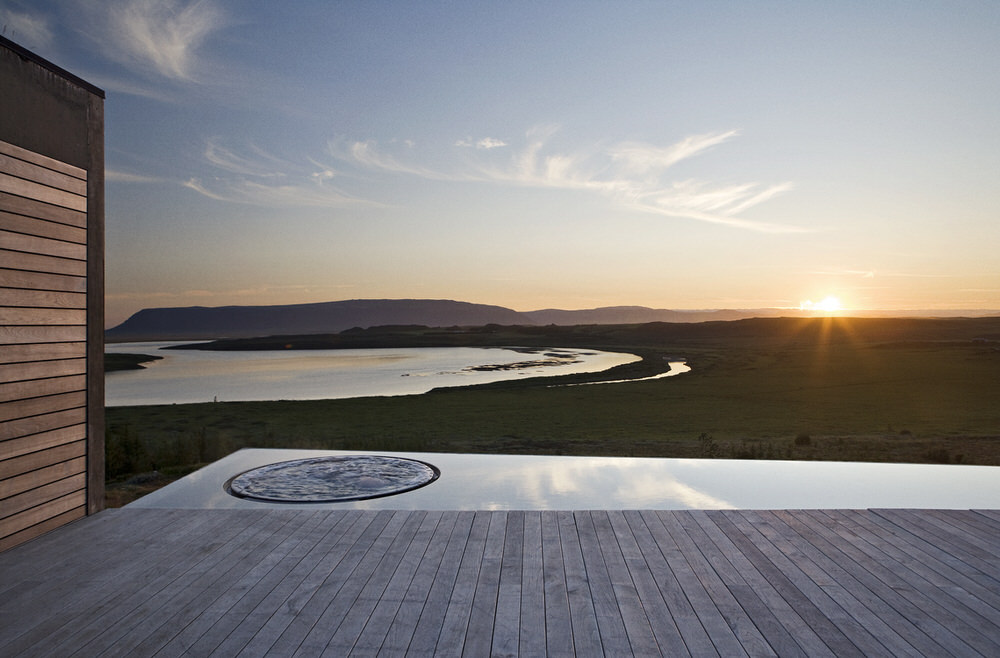
Share this Post
Further Info
| Architect | PK Arkitektur |
|---|---|
| Photographer | Rafael Pinho |


